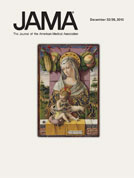![]() Here at Retraction Watch, we’ve been following the case of Jatinder Ahluwalia with interest. You may recall that an investigation by University College London (UCL) found “beyond reasonable doubt” that Ahluwalia had renumbered files to deceive a co-author. UCL was also “highly confident” that Ahluwalia had messed with his solutions to make his results look better, and sabotaged his colleagues’ work. The report of that investigation was part of a Nature retraction notice.
Here at Retraction Watch, we’ve been following the case of Jatinder Ahluwalia with interest. You may recall that an investigation by University College London (UCL) found “beyond reasonable doubt” that Ahluwalia had renumbered files to deceive a co-author. UCL was also “highly confident” that Ahluwalia had messed with his solutions to make his results look better, and sabotaged his colleagues’ work. The report of that investigation was part of a Nature retraction notice.
We’ve now learned that UCL was not the first scene of misconduct by Ahluwalia. Yesterday, we obtained letters by University of Cambridge faculty and administrators describing repeated — and in the words of of one professor, amateurish — data fabrication by Ahluwalia that led to his dismissal from the university’s graduate program.
In a letter dated November 10, 1997, Martin Brand, then Ahluwalia’s PhD advisor, wrote: Continue reading Exclusive: Researcher found guilty of misconduct at UCL had been dismissed from Cambridge for data fabrication








